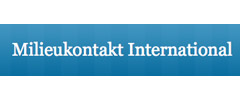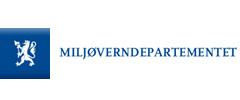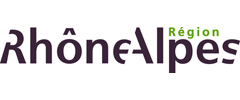Toxic pesticide banned in Jamaica
Endosulfan has been identified as a presisten organic pollutant
30.08.2010 |CSN Chemical Sensitivity Network
endosulfan is one of them. We are being proactive and have decided to
phase out its use early. The stocks (of endosulfan) now here in 2010 are
to be used out and never (to be) imported again," Michael Ramsay (Pesticide Control Authority'a PCA's registrar) said.
Endosulfan is used in coffee industry
Endosulfan, the pesticide which is widely used in the local coffee
industry, has long been considered dangerous for human and aquatic life
and for the environment. It is a colourless solid that emerged as
controversial because of reports of its acute toxicity, potential to
bioaccumulate and its role as an endocrine disruptor.
The US Environmental Protection Agency (EPA) indicates: "Endosulfan is
volatile, persistent, and has a high potential to bio-accumulate in
aquatic and terrestrial organisms. A large body of scientific literature
documents endosulfan's medium- and long-range transport on a global
scale and subsequent accumulation in nearly all environmental media.
Through the process of global distillation, endosulfan is present in
air, water, sediment, and biota thousands of miles from use areas."
People may be exposed to residues of endosulfan through food and
drinking water and it may be found in human milk. The EPA, like
Jamaica's PCA, is taking action to end all uses of the insecticide in
the United States.
Endosulfan is registered only for use against coffee berry crops
Ramsay said that endosulfan is only registered in Jamaica for use
against the coffee berry borer, a beetle that feeds on coffee and can
cause extensive damage to coffee crops, but said that, unfortunately,
there were indications that it was being used on vegetables - another
reason for its early phase out here.
As is expected, the news of the phase out of this dangerous and toxic
chemical has hit the coffee industry hard, but the Coffee Industry Board
(CIB) has indicated that it is in full support of the decision.
The chemical being used instead of endosulfan, Gentles explained, is
four times more expensive than endosulfan and gives only a 70 per cent
kill.
The author, Eulalee Thompson is health editor and a professional counsellor
email: eulalee.thompson@gleanerjm.com
Read the whole article on:
http://www.jamaica-gleaner.com/gleaner/20100804/health/health1.html
Related News
Getting to the Future We Want
4-7 November, Brussels: European Environmental Bureau’s (EEB) Annual Conference
12.11.2018
Human Biomonitoring for Europe
Vienna, 26 September: stakeholder forum
28.09.2018
A life without plastic, wouldn't it be fantastic?!
Interview with Charlotte Schueler of @PlastikfreiLeben, who lives a zerowaste life in Munich, Germany and shares her experiences to her 25.2 thousand followers on instagram & 37.2 thousand followers on facebook
14.09.2018
Calling for periods free from plastic & hazardous chemicals
Letter to Frédérique Ries, MEP, European Parliament on behalf of the #BreakFreeFromPlastics movement
04.09.2018






































